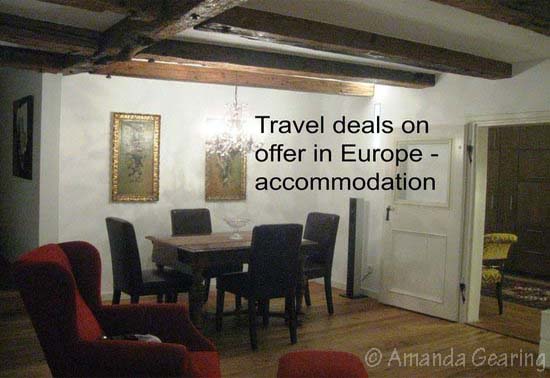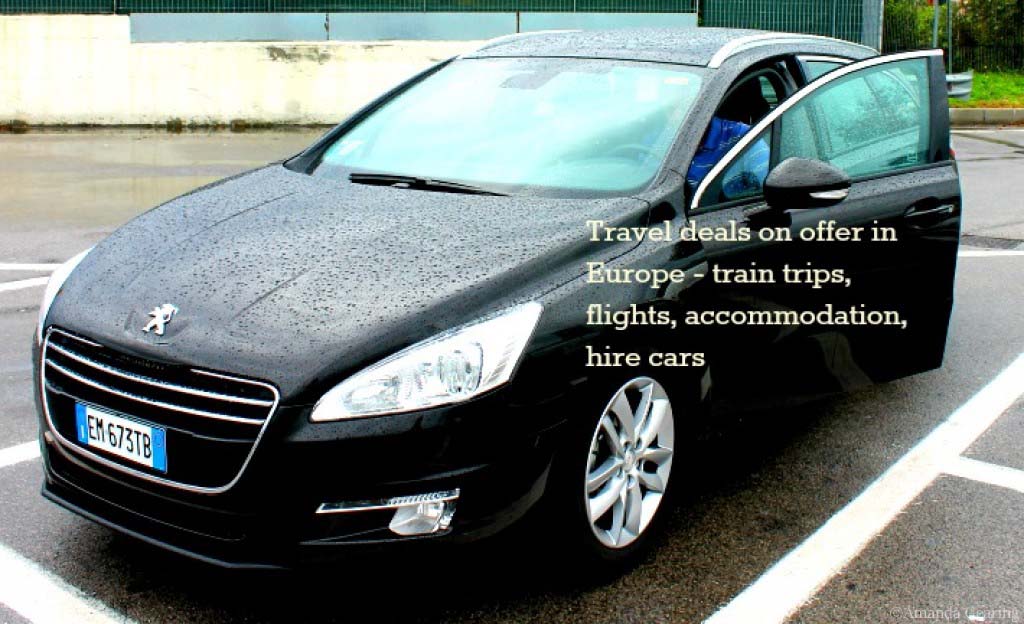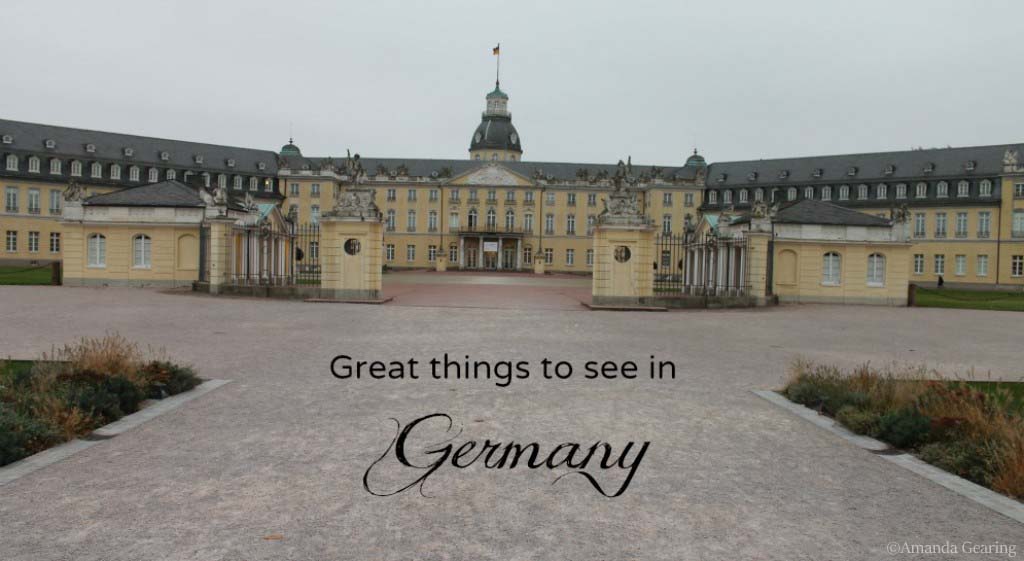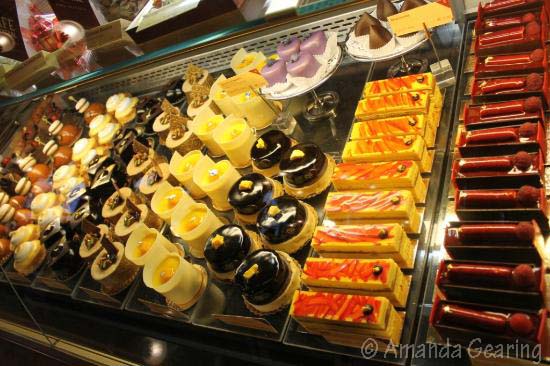Updated on August 28, 2013
A dozen money-saving strategies
Once you’ve worked hard and saved for your overseas trip, bought your plane tickets and begun weighing up where you can go and what you can see within your budget, you soon realise there are choices to make.
Spending more time in places and seeing everything you want to see can cost a lot in accommodation unless you know a few tricks of the trade that will save you up to 50% of the accommodation cost.
Staying twice as long in a place gives you more ‘play time’ to just wander and experience a place as the locals do, discover things for yourself rather than pay for high cost, high impact guided tours that leave you wondering what city you’re in when you wake up.
Having a great time in Europe does not have to cost a fortune. After seven months in Europe we picked up several money-saving strategies to keep within a tight budget but still have a great time.
Accommodation, food and transport are the biggest cost items so keeping these under control is important.
1. Rent an apartment – not a hotel.
Hotels are the most expensive accommodation option, so avoid them if possible. The accommodation cost will be high and in addition you will have to eat out for all your meals, and pay for laundry which can be very expensive, especially if you are traveling as a family. Renting an apartment will be just as central but cheaper and give you more space and the ability to make your own meals and do your own washing.
Comparison costs for Vienna, for example, we paid €1200 for a room for 5 days. In Salzburg we hired an apartment in the old city for about €400 for a week which was equiped with a lovely kitchen, dining room, lounge room and bedroom in a 13th century house about 200m from the Cathedral.
4. Stay for a week.
Rental for a week is usually about the same price as for four or five days, so you save a lot by staying for a week.
Staying for a week also allows you time to explore a place thoroughly and make a day trip or two as well, often to very interesting out-of-town attractions.
On our trip for seven months in England, France, Italy, Germany and Austria, we stayed at least a week in each place. Staying for longer in each place reduces the amount of travel and accommodation organising and gives you time to book your forward travel plans.
5. Be flexible with arrival/departure day.
If searching online for accommodation, find out the usual arrival/departure day of the week for that place.
If most accommodation is booked from Friday to Friday, you’ll find more options for Fridays than if you search for Saturday to Saturday dates.
6. Avoid Saturday travel
Saturday is the most expensive day for travelling because there’s high passenger demand, especially for days when there are major local events being held.
Compare prices for traveling on other days nad take an alterative if possible.
8. If eating out, have your main meal at lunchtime.
If you are going to eat in restaurants, try lunchtime rather than evening, as the service is usually quicker and the meals are usually cheaper than dinner service.

2. Book accommodation as early as possible.
The best apartments will book out well ahead of your travel dates so book as early as possible to have a wide selection of options.
In some countries, travel costs go down the closer you get to your travel dates. In others, the p[rice rises. In Europe, prices rise very steeply the closer you get to your travel dates.
3. Deal direct.
If you can pay your rent directly to the owner of the property rather than through a booking service you will save money. For Britain and Europe try ownersdirect.com or airbnb.com.
We had success with both ownersdirect and airbnb with bookings in the UK and Europe.
One warning though, to beware teaser ads where owners have more than one property in a place and advertise a great-looking place in a good location but when you ask for a booking, they tell you it’s booked out but they have another place. Ask for photos and more information about the alternative accommodation and the new location before booking just to make sure. We ended up in the tiniest apartment in creation in Paris which was cramped and uncomfortable, despite being in a great location in Rue des Arts, just south of the Ile de la Cite.
7. Shop for food where the locals shop
Most European cities will have ‘tourist areas’ where eating out will cost much more than the areas where the locals eat. Find a market or supermarket and get local produce for breakfast, local breads and cheeses for lunches that you can carry in your backpack and basic supplies – wine, cheeses and fruit to make easy light meals or relax with a picnic on long summer evenings admiring the views. Supermarkets will usually also sell a wide selection of local wine with good quality wines for AUD $5-10 bottle.
9. Buy train tickets early
Train tickets increase drammatically the closer you get to your travel date, so book as soon as you know your travel dates. Eurostargoing from France to England books out on some days many months in advance. If you book early enough you can find great deals.
10. Take your own snacks when travelling
Taking your own snacks and/or lunch will save buying highly inflated, poor quality ‘railway station food’.
In Italy, there are many small delis where you can buy a bread roll of your choice, have the shop slice fresh ham and cheese of your choice to make a fresh roll for a fraction of the cost of buying a ready-made soggy roll at the station or on the train. Kepp an eye out for these shops as you wander around and allow time to buy lunch on your way to the station, bus station, ferry port or airport.
11. Train, bus or car?
Car hire usually becomes cheaper than train or bus fares if you are traveling with three or more people in a group. If you are traveling long distances is worth considering whether the driver or drivers are used to driving on the opposite side of the road from usual, whether they would prefer to sit in a train or bus to absorb the scenery.
If you are traveling a long distance, consider also whether you can swap drivers if one becomes tired.
The locations where you are traveling are also a consideration. Car travel is more convenient in rural locations where there is less public transport available.

If you’re going from the central city of one place to the central city of another place, train or bus will work best as car parking in cities is very expensive and sometimes difficult.
12. Look for car rental deals and save the quotes
Car rental companies offer good earlybird deals. If booking online, choose the ‘save quote’ option to lock in the price of any deal that looks ok to save the pricing.
The company will usually email you back offering you a better deal a day or two later on the same car.
Be ware of the insurance costs. You might find a great car rental deal and then discover the insurance excess is huge unless you pay an extra $100 a day for insurance. This will increase the overall cost significantly.
In some countries it is possible to buy insurance excess reduction policies separate from the car hire.
We found that online credit card transactions with our home address outside the coutry we were in could not be processed online. In these cases we used a debit travel card.



Recent Comments